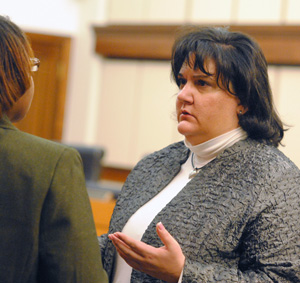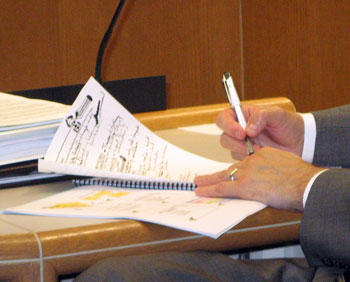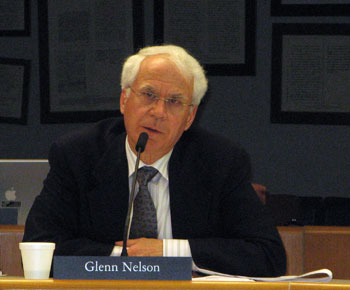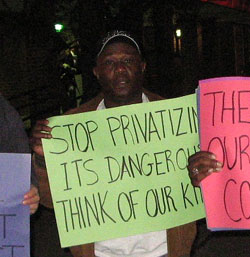Nearly $12 million in potential cuts over the next two years – affecting up to 181 employees and services to hundreds of residents – are being considered as Washtenaw County leaders struggle to deal with a two-year budget deficit that’s grown to $30 million for 2010 and 2011. Details of the cost-cutting options were released Thursday. County administrator Bob Guenzel will formally present the options at an Aug. 5 board of commissioners meeting – a meeting that’s expected to draw a crowd of county staff and union members.
Hardest hit in this latest round could be mental health services – one option is to cut that part of the general fund budget by $2.4 million and eliminate 91 jobs.
At a July 29 briefing for commissioners, Guenzel stressed that the options he’ll present next week aren’t his final recommendations. No decisions have been made, he said. The extent of the cuts, which commissioners will vote on as part of the overall budget, ultimately will depend on the outcome of ongoing negotiations with union leaders.
The county is talking with most of the 17 bargaining units that represent about 1,000 of the county’s 1,350 workers, asking for concessions – even though union contracts are set through at least 2010. Guenzel plans to update commissioners on the progress of union talks at a closed executive session during their Aug. 5 board meeting. The closed session for union contract negotiations is an exception allowed under the Open Meetings Act.
This is the second phase of budget cuts. Phase 1, approved by the board in July, included $13.69 million in cuts and a reduction of 26 jobs, about half of them already vacant. Guenzel’s final 2010-2011 budget recommendations are expected to go before the board at its Sept. 16 meeting.
After the jump, we’ll provide details for the budget options being considered next week. [Full Story]








